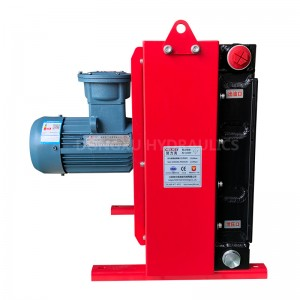Air coolers have become widely popular in recent years as an energy-efficient alternative to traditional air conditioning systems. These cooling devices provide relief from hot weather by moistening and cooling the air in the room. However, some users may experience poor heat dissipation effects, which can be frustrating.
1. Inadequate ventilation: Proper placement of an air cooler is crucial for its efficient functioning. If the cooler is not placed near an open window or door, it may struggle to release the humidified air outside, resulting in poor cooling. Without proper ventilation, the room can become excessively humid, leading to discomfort and reduced cooling effect.
2. Room size: Air coolers are designed to cool small to medium-sized rooms effectively. If used in a larger area, they may struggle to provide the desired cooling effect. The cooling capacity of an air cooler is measured in Cubic Feet per Minute (CFM). It is essential to choose a model that matches the size of the room for optimal performance.
3. High ambient humidity: Air coolers work by evaporating water using a fan, thereby cooling the air. However, if the ambient humidity is already high, the effectiveness of the cooler may be compromised. In areas with naturally high humidity levels, such as coastal regions, air coolers may struggle to provide the desired cooling effect.
4. Insufficient water supply: Another crucial factor influencing the heat dissipation effect of air coolers is the availability of a sufficient water supply. Air coolers typically operate by drawing water from a tank or through a connected water supply. If the water supply is inadequate, the cooler may not be able to generate enough moisture to effectively cool the air.
5. Lack of maintenance: Like any other appliances, air coolers require regular maintenance to function optimally. Neglecting maintenance tasks such as cleaning the filters, emptying and refilling the water tank, and regularly inspecting the cooling pads can lead to reduced cooling performance. Over time, dust and dirt can clog the filters and impede the airflow, resulting in poor heat dissipation.
6. Incorrect usage: Proper usage plays a significant role in ensuring the optimum performance of an air cooler. If the cooler is running in a room with open windows, it can draw in warm and humid air, reducing its cooling capability. Additionally, using the cooler in an overcrowded room can hinder the air circulation and prevent efficient cooling.
In conclusion, several factors can contribute to the poor heat dissipation effect of air coolers. Inadequate ventilation, improper placement, room size, high ambient humidity, insufficient water supply, lack of maintenance, and incorrect usage can all impact the cooling efficiency. To ensure the best performance, it is essential to choose the right cooler size for the room, maintain a proper water supply, and regularly clean and maintain the device.
Post time: Sep-25-2023
